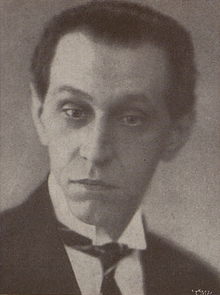
Osvald Chlubna (July 22, 1893 in Brno – October 30, 1971 in Brno) was a prominent Czech composer. Intending originally to study engineering, Chlubna switched his major and from 1914 to 1924, he studied composition with Leoš Janáček. Until 1953, he worked as a clerk. Later, he taught at the Organ School in Brno for many years. He worked in many art organisations in Brno. Chlubna's works can be defined by three distinct periods: Romanticism, Impressionism, all the way to the Modern Constructivism. He delved into Symbolism as well. He used the texts of symbolic Czech poets, such as Otakar Březina, Jaroslav Vrchlický, Jaroslav Durych and others. He wrote several cycles of compositions for piano and organ, as well as instrumental concerts, symphonies, ouvertures and cantatas. He wrote many operas, often using his own librettos, such as The Revenge of Catullus based on the work of Vrchlický (1917), Alladina and Palomid (based on the work of Maeterlinck, 1925), Ňura (1932), How the Death came in the World (1936), Jiří from Kunštát and Poděbrady (based on the work of Alois Jirásek, 1941), Cradle (composed on the work of Jirásek, 1951), Eupyros (1960). He also wrote texts and articles primarily about Janáček.
Opera
Ballet
Orchestra
Band
Concertante
Chamber
Piano
Organ
Choral
Vocal